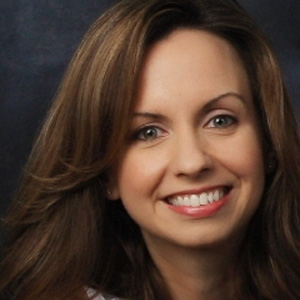 As we count down the days until Media That Matters 2014, check the CMSI blog to learn more about our #MTMDC panelists and why they engage with media that matters.
As we count down the days until Media That Matters 2014, check the CMSI blog to learn more about our #MTMDC panelists and why they engage with media that matters.
Center Creative Director and American University professor Caty Borum Chattoo will be moderating the keynote address at Media That Matters 2014 and leading the pre-conference workshop Designing For Impact. Here is her story.
1. What do you do? How is your work breaking new ground?
I always like to describe my professional expertise as working in “social change through media” at the intersection of social science (public opinion, media effects), strategic communication (issues communication, public affairs, digital) and documentary/media production (TV, film, online). The “thru-line” is the idea that, in order to create or shape social change through media/entertainment/documentaries, it’s important to understand and maintain a level of expertise in all aspects of the work, from media impact research (and design), incorporation of media-impact principles into the design of a production, the production and storytelling itself, and the strategic outreach and evaluation at the end. I produce media (documentaries, transmedia), design and facilitate impact research, and design and lead public affairs and strategic campaigns designed to raise awareness of the production and its core social issues.
2. How did you get where you are? What have you done in the past?
I’m currently serving as the Creative Director for the Center for Media & Social Impact (and Executive in Residence at American University’s School of Communication), but my prior experience is focused on all three of the areas mentioned above (media effects, documentary/media production, strategic communication).
As a documentary film and TV producer, I have produced two feature theatrical films, multiple half-hour TV specials, a seven-part documentary TV series, PSA campaigns and digital videos, working in partnership with organizations including Comedy Central, Black Entertainment Television (BET), Sierra Club, Save the Children, Oxfam America, Population Services International (PSI), AFL-CIO, National Institutes of Health, YWCA, Malaria-Free Future, California Nurses Association, and more. My work has premiered theatrically (and in film festivals) and aired on Sundance Channel, Comedy Central, PBS World, Link TV and other networks.
Prior to my time here at AU, I was a Senior Vice President in the social marketing practice group at the D.C. office of Fleishman-Hillard International Communications, where I directed national programs in behavior change communication. In Los Angeles, I was a longtime collaborator with TV/film producer Norman Lear, as both a producer and as a founding director of Lear’s Declare Yourself, a national youth civic engagement and Hollywood campaign, where I directed short-film production, evaluation research, curriculum development and other special projects. I also served as Special Projects Director & Senior Producer at the Norman Lear Center at the University of Southern California, a multidisciplinary entertainment research center. As a Program Officer in the Kaiser Family Foundation’s Entertainment Media & Public Health program, I produced public health TV specials and multiplatform projects and campaigns in partnership with MTV and BET.
3. What current or future projects do you want to tell us about?
At the moment, I am an executive producer and producer on “Stand Up Planet,” a documentary TV and digital series funded by the Bill & Melinda Gates Foundation (in post-production). Synopsis: Using the lens of international stand-up comedy, stand-up comic Hasan Minhaj (MTV’s “Failosophy”) travels to India and South Africa to learn about the social issues behind the comedy on a quest to find human connection through humor. The project is in the middle of distribution negotiations, so hopefully I can announce the TV premiere soon!
I’m also really happy and honored to be working with Participant Media on its large scale media-impact measurement projects. Participant and its allied groups and partners are on the cutting edge of bringing together powerful social science research and new digital methods in order to understand why and how entertainment impacts the culture in a variety of social issues – to me, it’s kind of a culmination and evolution of so many parts of my career, and it’s a gift to be able to work on a project with fantastic, smart people.
4. What do you think makes media a powerful tool for change?
I had the great good fortune of working for one of the foremost leaders and examples of this tradition of “media as a tool for change,” the great TV and film producer (and philanthropist)Norman Lear, whose groundbreaking TV shows of the 1970s and ’80s changed the culture in ways that can be seen on a societal level and an individual level. You can’t look at the culture of today and not see a ripple effect from that work. These ideas are reflected in the important works of media scholars, as well, of course, but there’s no more powerful force for change than the emotional impact that begins with storytelling in media.
5. Have you personally experienced a situation in which media made a positive difference? Tell us about it.
Too many to count!
6. Why do you want to speak at Media That Matters?
It’s fantastic to spend a few days in the company of people who care about this work as much as I do — and to keep learning from them.
Meet Caty and other innovative media makers at the Media That Matters conference this February. If you haven’t signed up yet, visit the registration page.
